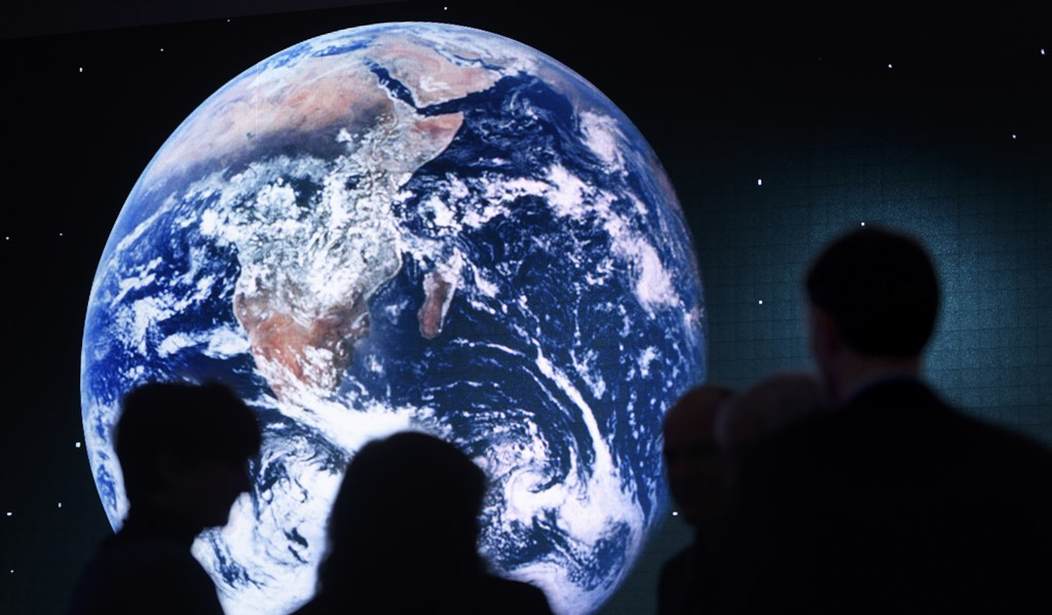You’d think someone who longs for the day when every human on Earth is dead would be treated as a moral monster like Mao, Stalin, or Hitler and ostracized by anyone with an ounce of reason or conscious, but Les Knight is treated with respect in many circles because he echoes the horrific anti-humanism lurking in the environmentalist movement. If you consider yourself an environmentalist, you have a life or death decision to make here.
In 1991, Knight founded the Voluntary Human Extinction Movement. The premise is that “When every human chooses to stop breeding, Earth’s biosphere will be allowed to return to its former glory …”
The Guardian recently ran an article authored by Knight titled, “I Campaign for the Extinction of the Human Race.” In it, Knight declares, “Procreation today is the moral equivalent of selling berths on a sinking ship.” Though he acknowledges that “society would be greatly diminished without children,” he goes on to assert, “it isn’t right to create them just because we like having them around.” He then doubles down on his excuse, stating that “if we go extinct, other species will have a chance to recover.”
“I can imagine what a magnificent world it would be—provided we go soon enough,” he concludes.
The ugly anti-humanism promoted by people like Knight has been part of the environmental movement for decades. Alan Gregg, former official of the Rockefeller Foundation, asserted in 1955, “The world has cancer, and the cancer is man.”
John Davis, editor of Earth First! Journal, wrote some three decades later, “I suspect that eradicating smallpox was wrong. It played an important part in balancing ecosystems.”
Recommended
In 1995, Dr. Reed R. Noss of the Wildlands Project declared, “The collective needs of non-human species must take precedence over the needs and desires of humans.”
In 1998,The Economist opined, “It is hard … to imagine any reason to be against voluntary human extinction.”
In 2009, Jonathon Porritt, an environmental adviser to former British Prime Minister Gordon Brown, made a more “moderate” suggestion: cutting his country’s population in half, by about 30 million people.
Let’s get our moral principles straight. There are no values without a valuer—a creature with a rational capacity and volition, that can make choices—and a standard of value. Humans are that creature—at least on this planet—and the standard is our lives. “Nature” and the “environment” have no inherent value, only value in relation to us. A forest is of value because we can walk through it and enjoy its beauty or harvest some of its trees to build houses for our survival and comfort. When a cheetah kills a zebra, it is neither “good” nor “evil.” It just is. When an asteroid hit the earth 65 million years ago, wiping out the dinosaurs, it was likewise neither “good” nor “evil.” It just was.
A world without humans would not be “magnificent” or infused with “glory” because such notions are human evaluations.
Today, we live in the most prosperous, human-friendly world in history. Sadly, many individuals who rightly worked to reduce the worst human-harming threats—choking air pollution, poisoned water—are seduced by the panic of global warming alarmists. But this panic fogs their thinking and warps their values from, “We must protect humans!” to a dogma of “We must protect Gaia, even at the expense of humans!”
If you value the environment because you want humans to survive, prosper, and flourish in the best world possible, you need be get past the climate hysteria and seriously question the science on which it’s based. You need to acknowledge that the benefits of a moderately warming world—e.g., record crop yields and fewer deaths from cold, the latter of which kills far more people than heat—are good for humans, and that damage from proposed solutions to the alleged warming crisis—such as hyper-high energy costs and radically reduced living standards—are not.
Most importantly, you need to clearly and loudly reject and shun those who hate humans so much that they would have us all dead for the benefit of mosquitoes, frozen mud, and a “natural” world of predators and prey bereft of all value because it’s bereft of humans.
Edward Hudgins, Ph.D.(ehudgins@heartland.org) is research director at The Heartland Institute.

























Join the conversation as a VIP Member